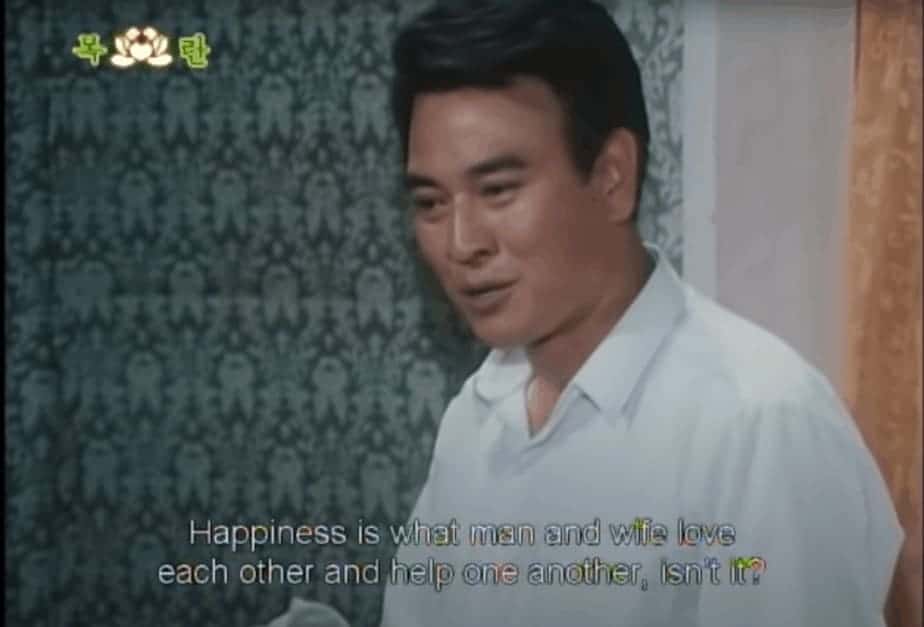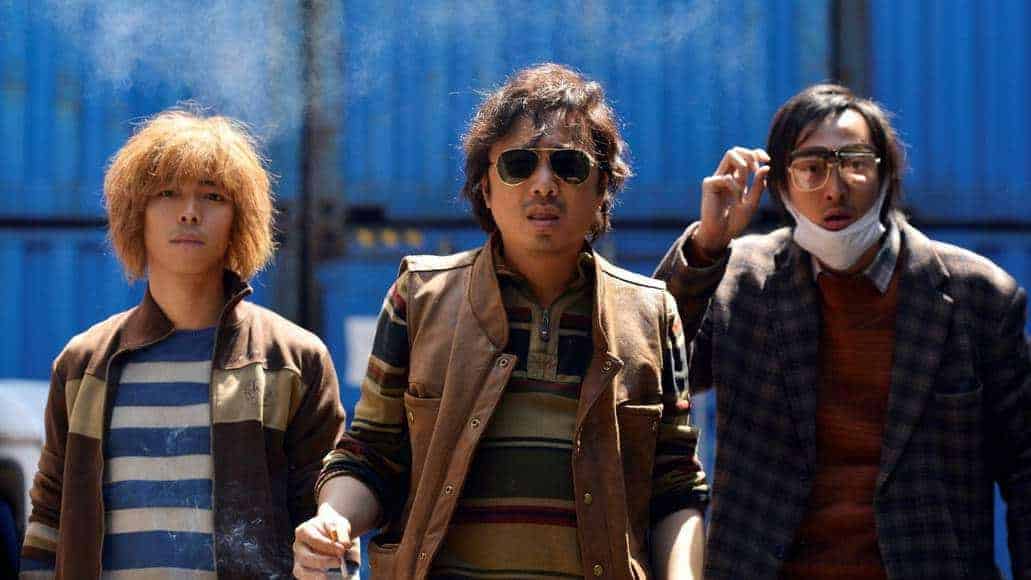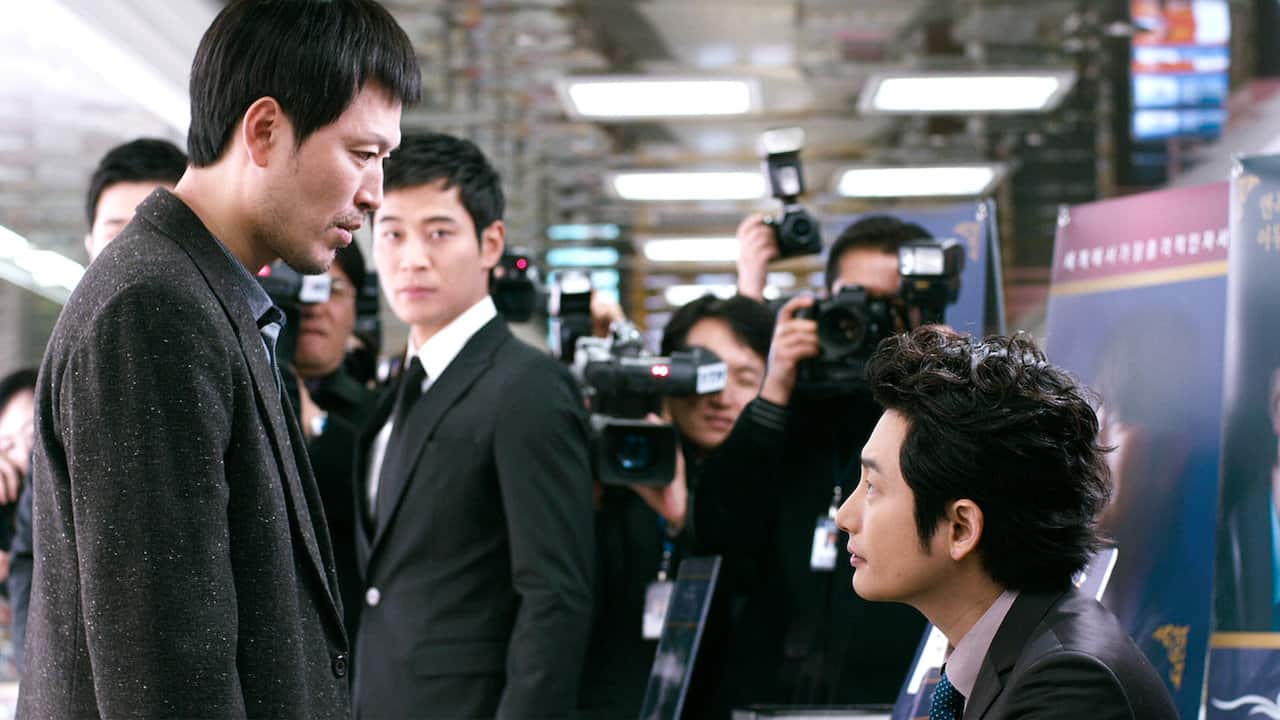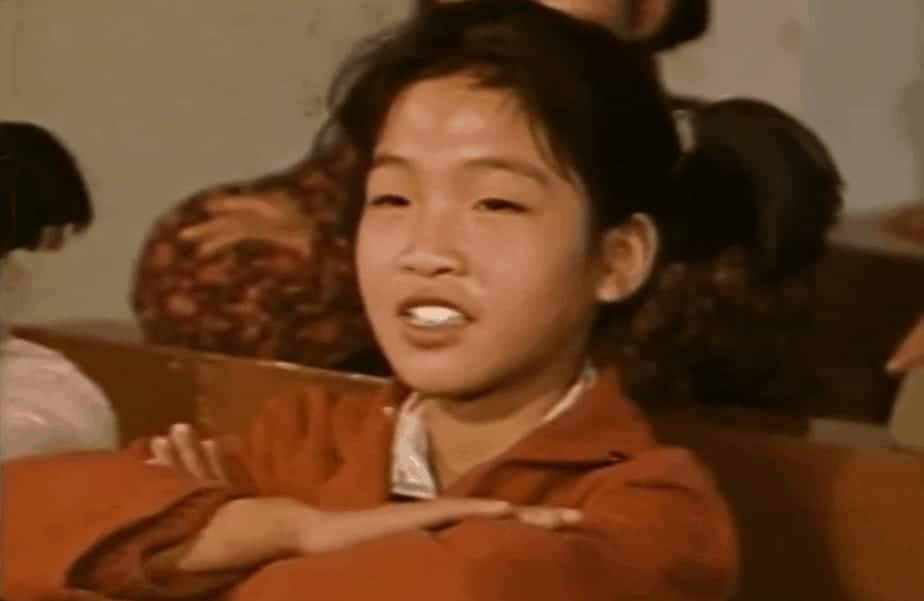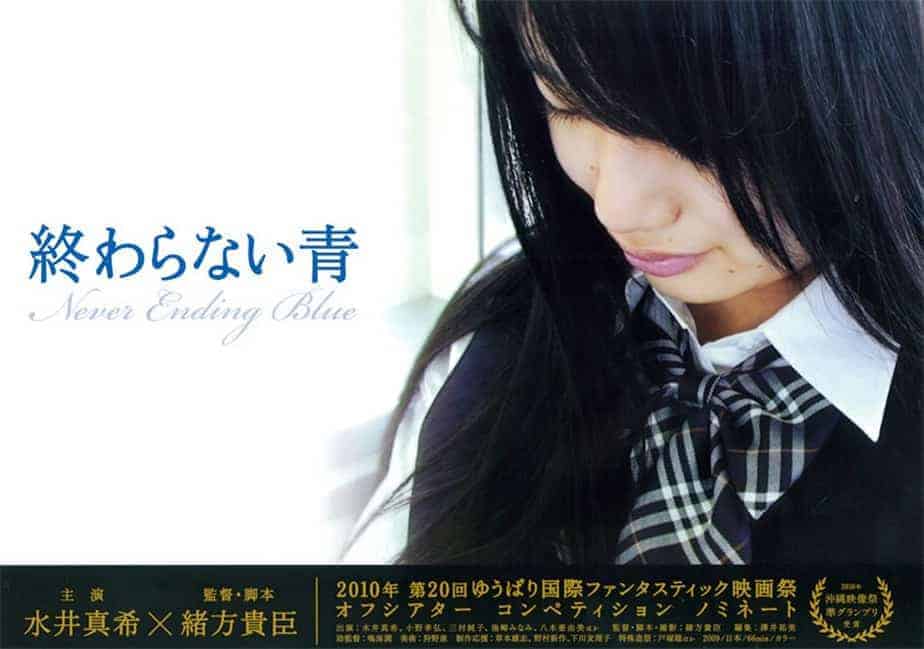By Martin Lukanov
Lee Kwan-am's 1996 family drama “Two Families in Haeun-dong” is one of the better known North Korean movies outside of the land of its creation, both for being written by the award-winning young writer Ung Yong-yui, and for being one of the few movies from the North shown at numerous South Korean movie festivals and even broadcasted on TV.
The film follows the life of the families of two engineer-scientists from the eponymous neighborhood in Pyongyang, North Korea. Like many movies with such a premise, the story begins with one of the families moving in at the building. Though the two families are superficially very similar – the fathers are scientists, working for the betterment of their nation, their children are similar age, and the mothers are hard-working and accomplished at their respective fields, one is a tour guide, the other, famous singer – it soon turns out that there is a vast difference between them.
One of the husbands is a doting father and a good member of the inminban, the specific to North Korea neighborhood organization, whereas the other is a workaholic who treats his wife as a nuisance and is rude to his neighbors. This creates a problem for the usually harmonious community, and they try to teach him but end up learning from him, instead.
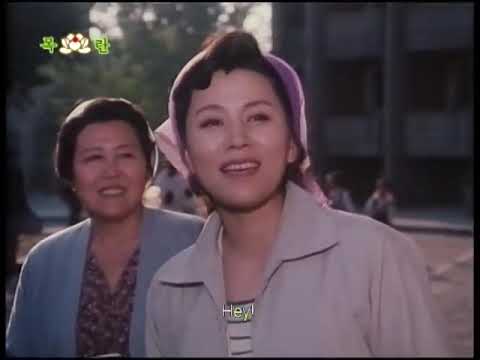
As any other North Korean movie, “Two Families in Haeun-dong” is created with the main goal of educating the audience and telling them about the new directions the country is headed. And possibly entertain them along the way, though the last isn't compulsory. As such, the movie conveys quite bluntly its intended message so as to be understood by anyone. And that message is as clear as day, being said directly by one of the characters – the citizens should stop caring about the simple pleasures of domestic and even communal happiness, but the happiness of the whole nation even when the latter is in direct conflict with the former.
One of the main reasons for the shift in priorities shown in the movie might be the double calamity of insurmountable famine during which the movie is shot, known euphemistically as The Arduous March, and the numerous economic sanctions against the country. For that reason, the country needs a new type of citizen, one who is not only willing but also desiring to forgo the happiness of his immediate family for that of the larger and more important one – the whole Korean nation – portrayed by Pom-i's father.
Even more, as we see from the character of Pyol-i's father, the people who think only about the good of their loved ones and the small community of the inminban, not only live complacent and uninspired lives but are also an actual threat for the well being of the nation. The same goes not only for him but also for almost everyone in the apartment building, whose main work seems not to be the betterment of the country but that of his family or immediate community. And that, as we see through the smart, though not very subtle, script by Ung Yong-yui, the slow direction by Lee Kwan-am, and ingenious editing style of Jeong Sun-hui, is simply unacceptable.
The way the movie manages to be both entertaining but at the same time, instructive is seen best in the rhythmical juxtaposition of the two families and the way they react to different mundane problems done through the editing of Jeong Sun-hui. This creates a very pleasant confusion in the viewer as to which father is the actual role model. With each passing scene, we become more and more uncertain both as to whom we should root for until we naturally reach the intended by the editor and director conclusion.
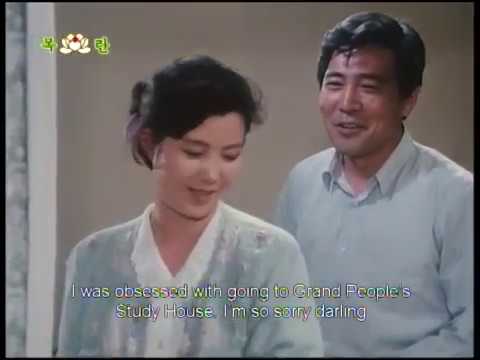
Being a character-driven film, and to a certain degree, a character study, the acting of “Two Families in Haeun-dong,” together with the already mentioned script by the young award-winning Ung Yong-yui, can make or break the movie. And luckily, the acting is one of the best I have seen in a North Korean movie in a long time. Though slightly theatrical and not quite nuanced, it manages to convey the characters and their motivations, even if they are not that complex to begin with.
Visually, the movie is neither exciting nor thought-provoking but that is to be expected with the cinema of North Korea where everything, the composition of the shots to the rhythm of the editing should work for the better conveyance of the main message of the film rather than its own aesthetic purpose. This results in a rather dull presentation with cinematography by Hwang Ryoung-cheol that lacks depth and mood, mise-en-scene design by An Sang-bok that lacks much imagination and detail, and direction that is minimal, slow, and unobtrusive. For that, the movie reminds a lot of Soviet-era Bulgarian cinema and social satires such as “Toplo.”
“Two Families in Haeun-dong” is one of the most interesting and easily accessible North Korean movies as it does not a strong militaristic theme but is about the everyday lives of normal people who just want to live their lives to the fullest. As such, it is a great starting place for anyone interested in learning more about the cinema and culture of North Korea.


